
Weird But Educational → The Wright English Blog
Weekly Series
Vocabulary Showcase - Mondays
Business Builder - Tuesdays
What The Fluff Wednesday - Wednesdays
GCSE and A-Level Goblin - Thursdays
Gateway to Grammar - Fridays
Blog Topics
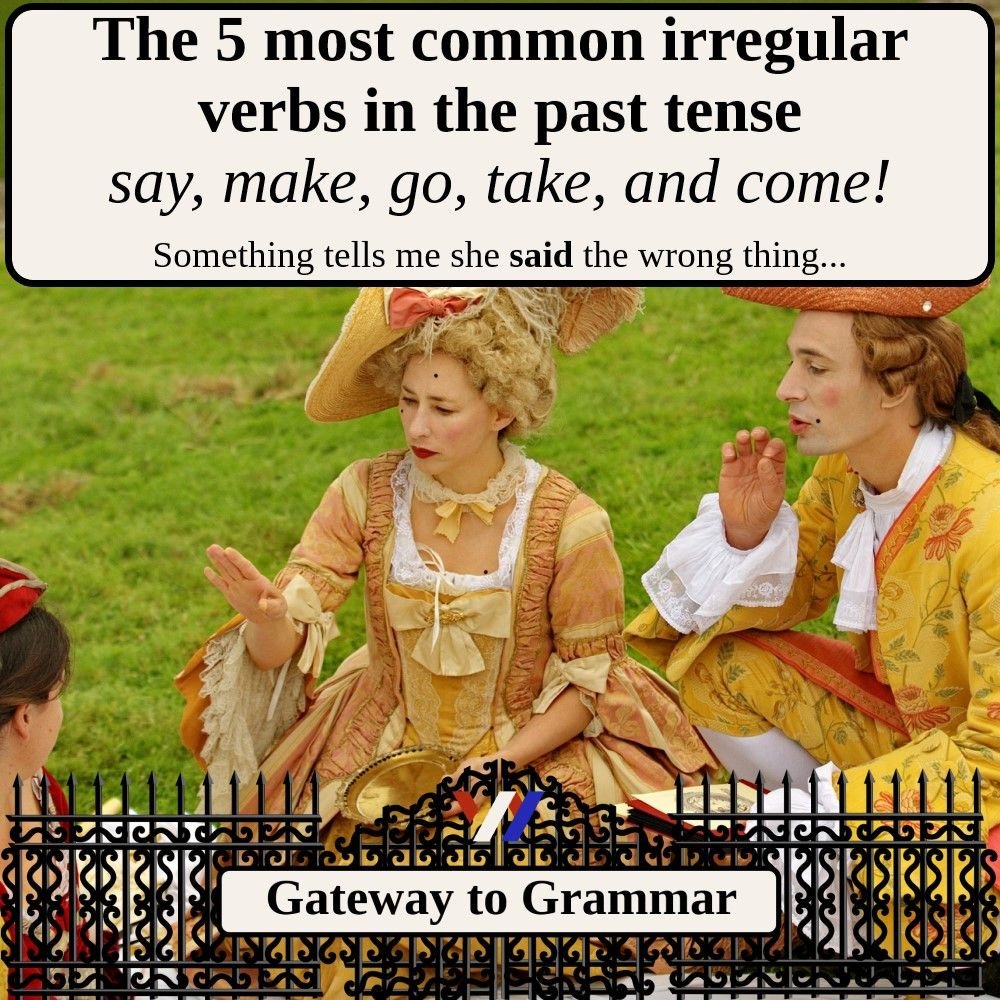
Gateway to Grammar: 5 most common irregular verbs in the past
To help you improve your past tenses I have taken the five most common verbs in English, and we will look at the past forms of these words.
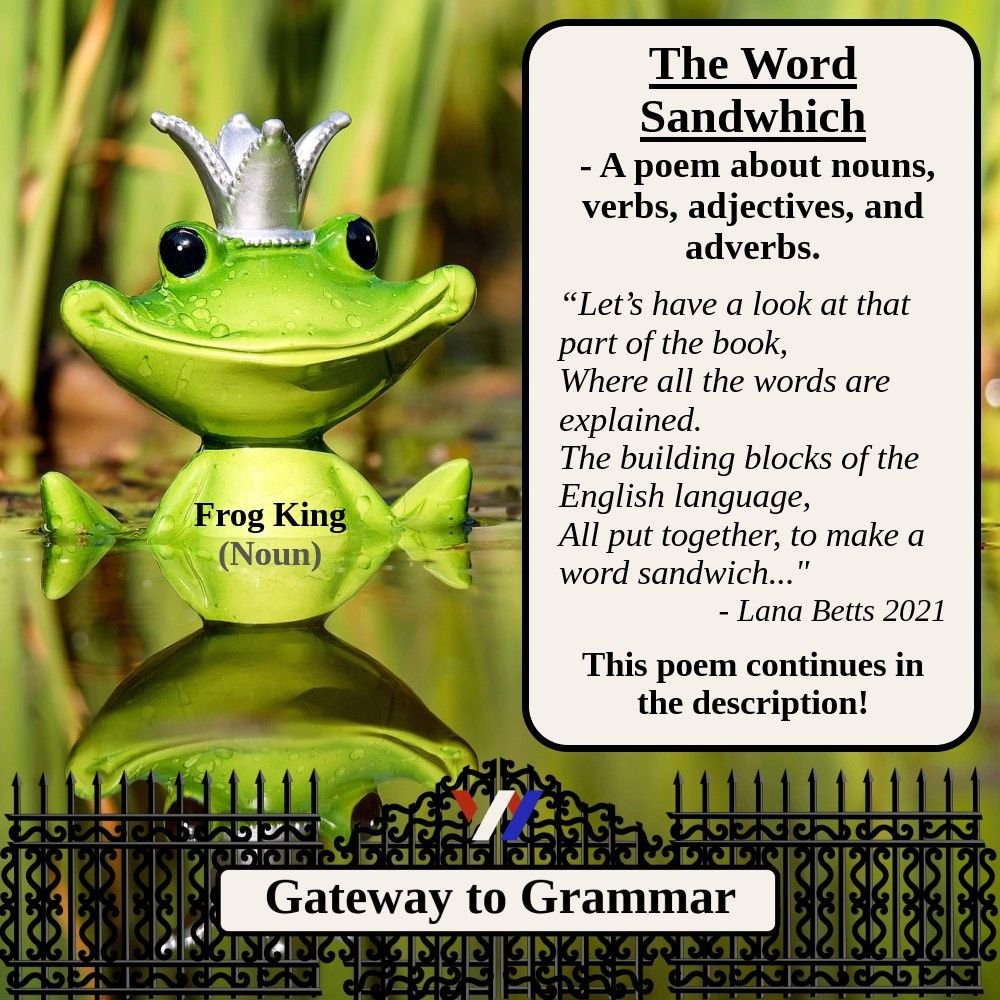
Gateway to Grammar: The Word Sandwhich (nouns, verbs, adjectives, and adverbs)
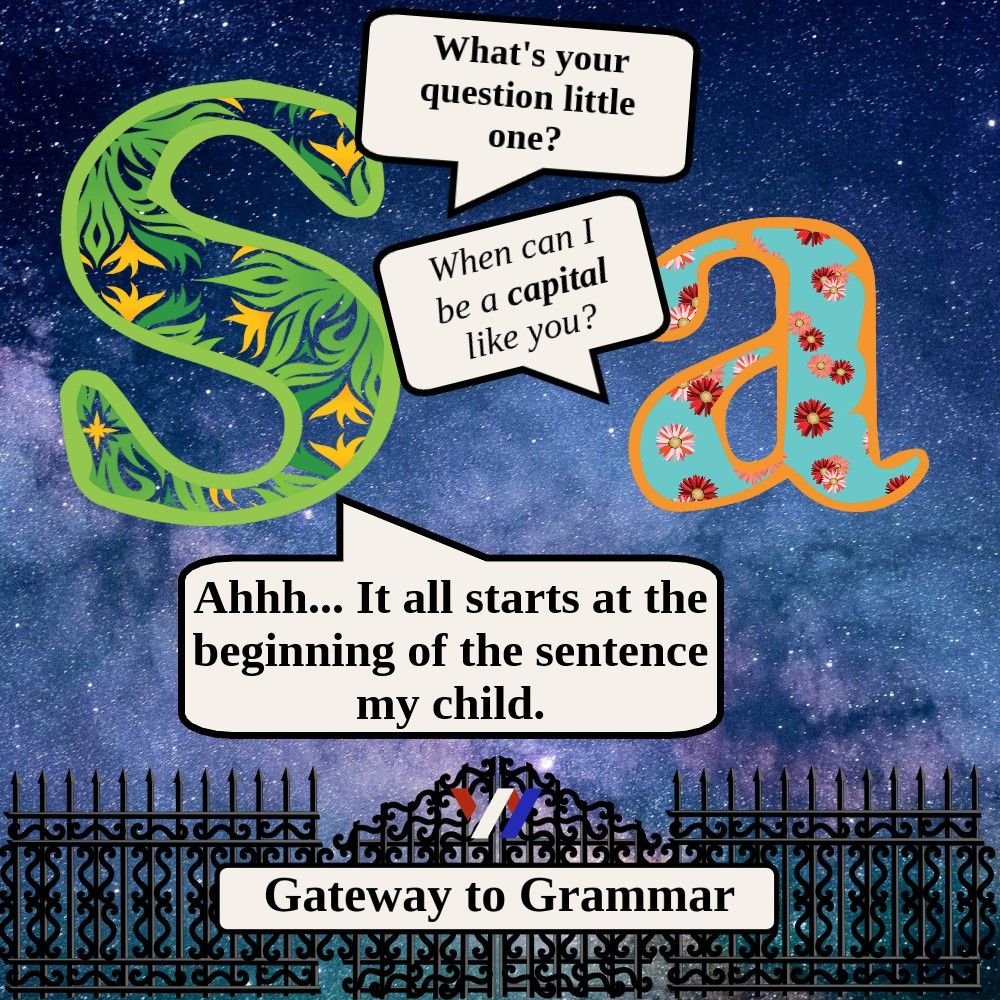
Gateway to Grammar: When to use capital letters in English
In some languages, like German and Russian, the capitalisation (using big letters) is quite complicated. Germans capitalise every noun for example. The good news is it’s a lot easier in English!

Gateway to Grammar: Using Modal Verbs in English
“what is a modal verb? “ordinary” verbs are “doing words”, they describe actions. Modal verbs describe the ‘mode’ (or meaning) of the normal verbs around them: can, will, need to, must, have to, shall, ought to, and might.
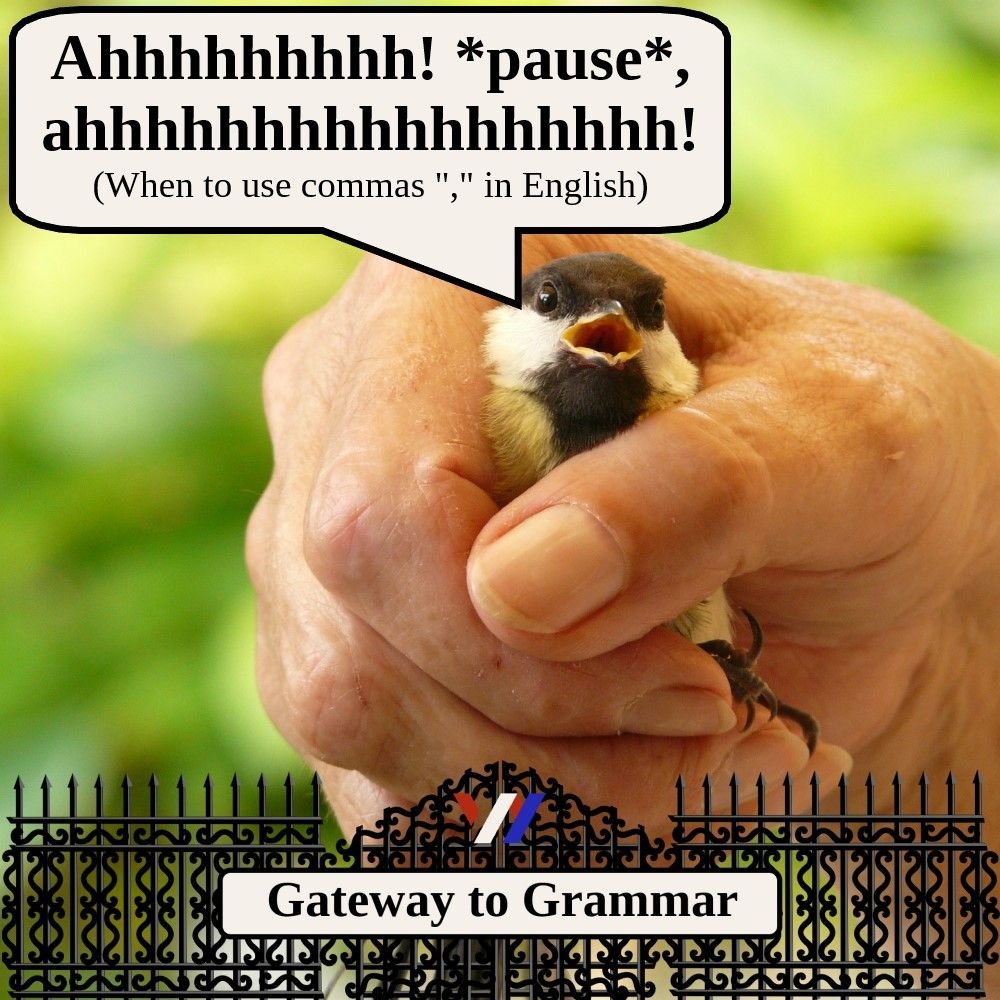
Gateway to Grammar: When to use commas in English
It can be a little difficult remembering when to use commas (,) in English, especially if they are used differently in your native language. Here are some helpful tips to show you when to use commas correctly in your writing!

Gateway to Grammar: Question Tags
Question tags are a very common way of speaking in English. When you see a question tag at the end of a sentence, think of it as meaning “or am I wrong?”.

Gateway to Grammar: Phrasal verbs with “go”
Here are some examples of these phrasal verbs, their meanings, and sentences using them. So, let’s go on!
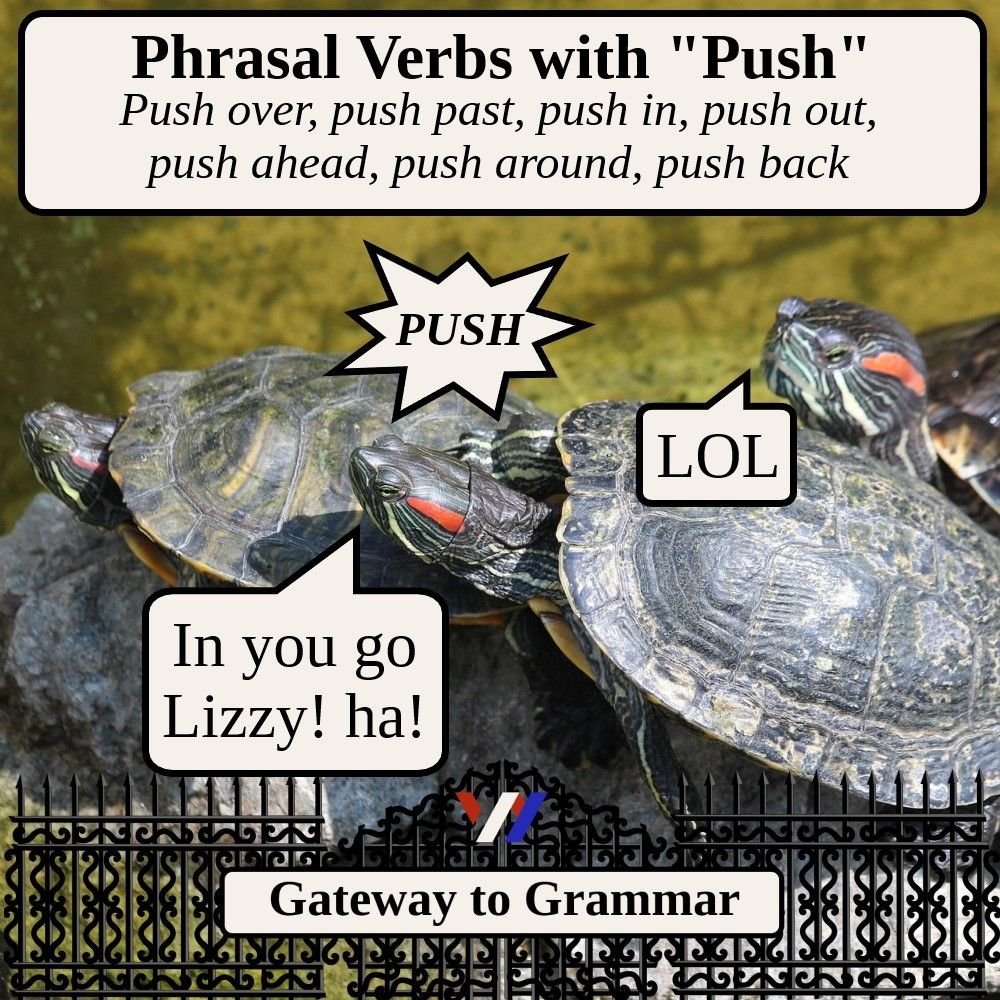
Gateway to Grammar: Phrasal verbs with “push”
There are many phrasal verbs (more than one word that behaves like a single verb) in the English language that uses the main verb “push”. Let’s have a quick look at some examples in use.

Gateway to Grammar: Much, many or a lot?
Much, many, and a lot can be quite difficult to understand. The most important things for much, many and a lot are, “can I count this thing?” and “Is this a positive statement, a negative statement, or a question?”
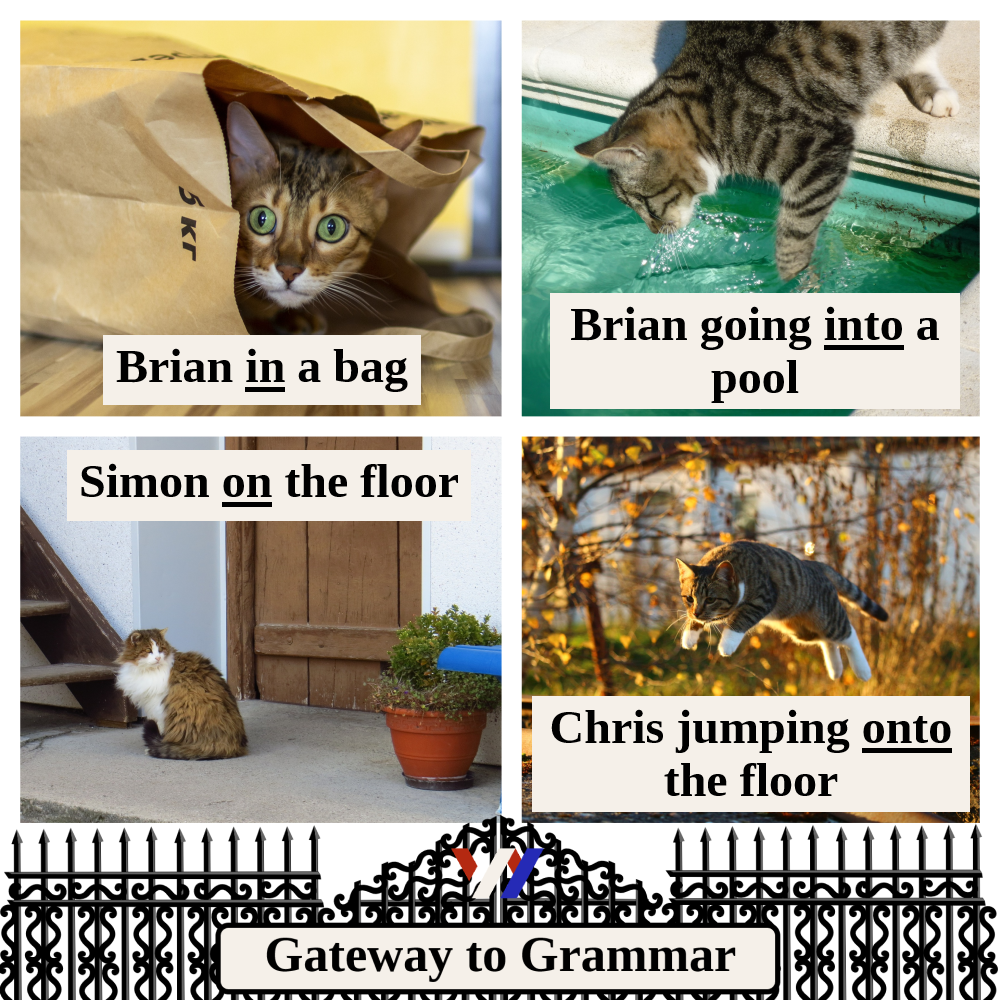
Gateway to Grammar: Prepositions of place and movement
Yep (informal yes), I found a way to make more educational cat pictures. We are taking a look at prepositions of place (in and on) and movement (into and onto) and what the differences are.

Gateway to Grammar: Who, Whose, and who’s?
Who, who’s, and whose? Who’s asking? You? OK, that’s enough of that. These words all have different meanings but look very similar. Let’s have a look at what they mean.

Gateway to Grammar: Useless English Grammar “rules”
If using a rule makes you sound like someone from 1652 it’s probably not a good rule anymore. Those rules belong in the bin (rubbish)!

Gateway to Grammar: Easy Identifying English Tenses
Is it have had? Have have? Well, that’s confusing enough. Let’s identify the parts of a sentence that show you what tense it is in. For these examples we will use the phrasal verb “switch on”.
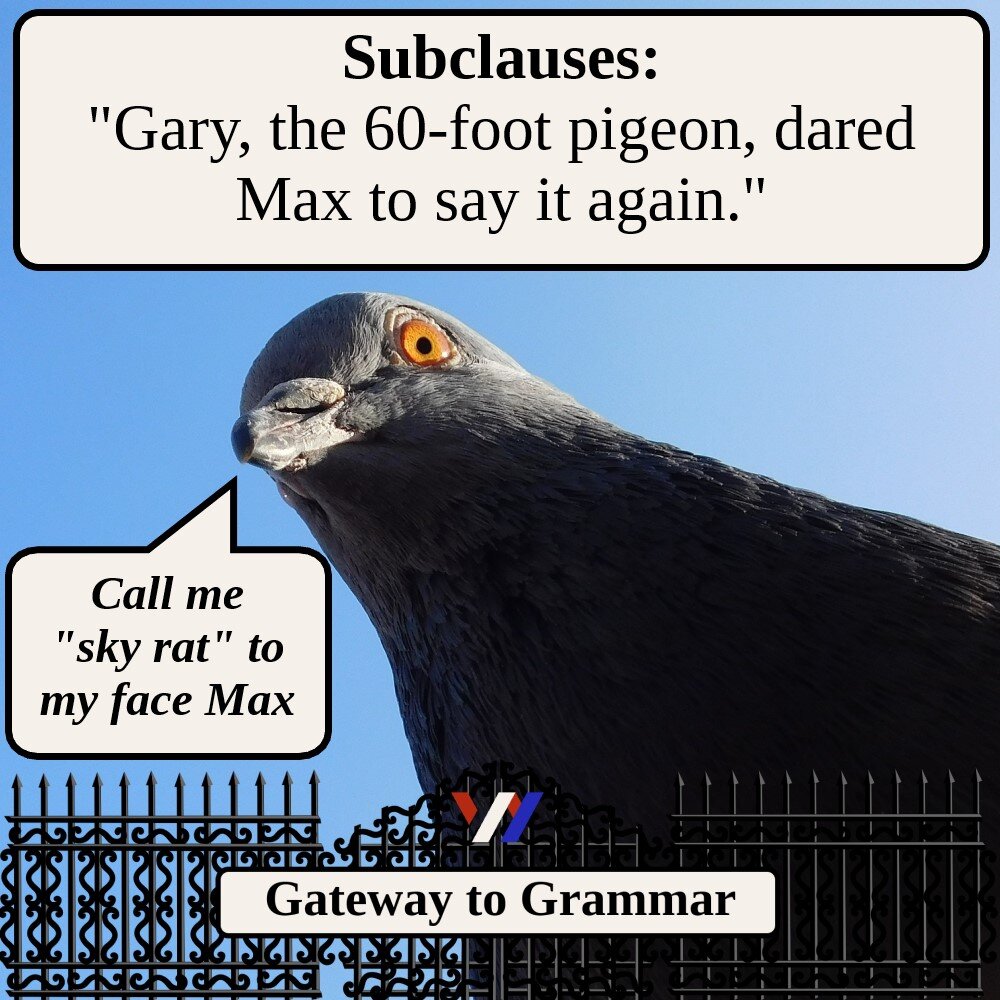
Gateway to Grammar: Main clauses and Subordinate clauses
If you ever struggle to work out what a ‘main clause’ and a ‘subordinate clause’ (subclause) are, I’ll give you some easy tips to identify them.

Gateway to Grammar: How to use reported speech
. If you ever have to tell someone, what someone else said, you will have to use “reported speech”.

Gateway to Grammar: Phrasal Verbs with “hang”
It looks like Kermit has some fun plans for tonight, so I might ask if I can “hang out” with him. Let’s have a look at some phrasal verbs using the main verb “hang”.

Gateway to Grammar: English Comparatives and Superlatives
To understand how to turn an adjective (a word that describes a noun) into a comparative (a word that compares things) or a superlative (a word that describes something as having the most of a quality), you need to understand syllables.

Gateway to Grammar: Phrasal verbs using “drop”
Thanks for dropping by! The main verb “drop” pairs up with a few prepositions and makes phrasal verbs in the English language

Gateway to Grammar: Phrasal verbs with “Call”
Phrasal verbs (or split verbs) are verbs that are made of more than one word. Many of the most common phrases in English are phrasal verbs! Why? Because the English are awkward.

Gateway to Grammar: English Prefixes and Suffixes
You can really help yourself learning English by learning the building blocks of our weird little language.
